#regulation of capitalism
Text

"Day of Free Enterprise Gone lan Mackenzie Tells House," Ottawa Journal. March 3, 1943. Page 3.
-----
The House of Commons last night passed the resolution setting up the Reconstruction and Reestablishment Committee and the Railway Committee.
After almost three days' debate on reconstruction problems in general the House unanimously passed the resolution by Pensions Minister Mackenzie to set up the committee to deal with this problem. The resolution was passed after Finance Minister Ilsley had completed his budget speech.
Mrs. Dorise Nielsen (Unity, North Battleford) urged the committee to see to it that the mild controls over industry established during the war be not relaxed when peace came. Canada had seen unrestricted competition after the last war force the people through "a period of hell". This should not be allowed to happen again.
The committee should see to it that security and levels of living be maintained after the war, Mrs. Nielsen said.
Mr. Mackenzie in closing the debate said in his 23 years in public life he had never listened to such a constructive debate as had taken place on this resolution. The suggestions which had come from all sides of the Chamber would prove most valuable to the committee.
Referring to controls, the Minister said in his opinion the day of free enterprise had gone forever. It would be "controlled enterprise" in the future.
The resolution to set up a railway committee started a debate on railway affairs when T. L. Church (Prog. Con., Toronto Broadview) appealed for better suburban service on railways in the larger centres. "Montreal is the only centre that has a good suburban service. It should be the same in other large centres."
#house of commons#parliament of canada#parliamentary debate#postwar reconstruction#postwar planning#postwar canada#pensions minister#regulation of capitalism#capitalism in canada#mackenzie king government#warfare state#welfare state#birth of the welfare state#canada during world war 2
1 note
·
View note
Text
Greenwashing set Canada on fire

On September 22, I'm (virtually) presenting at the DIG Festival in Modena, Italy. On September 27, I'll be at Chevalier's Books in Los Angeles with Brian Merchant for a joint launch for my new book The Internet Con and his new book, Blood in the Machine.

As a teenager growing up in Ontario, I always envied the kids who spent their summers tree planting; they'd come back from the bush in September, insect-chewed and leathery, with new muscle, incredible stories, thousands of dollars, and a glow imparted by the knowledge that they'd made a new forest with their own blistered hands.
I was too unathletic to follow them into the bush, but I spent my summers doing my bit, ringing doorbells for Greenpeace to get my neighbours fired up about the Canadian pulp-and-paper industry, which wasn't merely clear-cutting our old-growth forests – it was also poisoning the Great Lakes system with PCBs, threatening us all.
At the time, I thought of tree-planting as a small victory – sure, our homegrown, rapacious, extractive industry was able to pollute with impunity, but at least the government had reined them in on forests, forcing them to pay my pals to spend their summers replacing the forests they'd fed into their mills.
I was wrong. Last summer's Canadian wildfires blanketed the whole east coast and midwest in choking smoke as millions of trees burned and millions of tons of CO2 were sent into the atmosphere. Those wildfires weren't just an effect of the climate emergency: they were made far worse by all those trees planted by my pals in the eighties and nineties.
Writing in the New York Times, novelist Claire Cameron describes her own teen years working in the bush, planting row after row of black spruces, precisely spaced at six-foot intervals:
https://www.nytimes.com/2023/09/15/opinion/wildfires-treeplanting-timebomb.html
Cameron's summer job was funded by the logging industry, whose self-pegulated, self-assigned "penalty" for clearcutting diverse forests of spruce, pine and aspen was to pay teenagers to create a tree farm, at nine cents per sapling (minus camp costs).
Black spruces are made to burn, filled with flammable sap and equipped with resin-filled cones that rely on fire, only opening and dropping seeds when they're heated. They're so flammable that firefighters call them "gas on a stick."
Cameron and her friends planted under brutal conditions: working long hours in blowlamp heat and dripping wet bulb humidity, amidst clouds of stinging insects, fingers blistered and muscles aching. But when they hit rock bottom and were ready to quit, they'd encourage one another with a rallying cry: "Let's go make a forest!"
Planting neat rows of black spruces was great for the logging industry: the even spacing guaranteed that when the trees matured, they could be easily reaped, with ample space between each near-identical tree for massive shears to operate. But that same monocropped, evenly spaced "forest" was also optimized to burn.
It burned.
The climate emergency's frequent droughts turn black spruces into "something closer to a blowtorch." The "pines in lines" approach to reforesting was an act of sabotage, not remediation. Black spruces are thirsty, and they absorb the water that moss needs to thrive, producing "kindling in the place of fire retardant."
Cameron's column concludes with this heartbreaking line: "Now when I think of that summer, I don’t think that I was planting trees at all. I was planting thousands of blowtorches a day."
The logging industry committed a triple crime. First, they stole our old-growth forests. Next, they (literally) planted a time-bomb across Ontario's north. Finally, they stole the idealism of people who genuinely cared about the environment. They taught a generation that resistance is futile, that anything you do to make a better future is a scam, and you're a sucker for falling for it. They planted nihilism with every tree.
That scam never ended. Today, we're sold carbon offsets, a modern Papal indulgence. We are told that if we pay the finance sector, they can absolve us for our climate sins. Carbon offsets are a scam, a market for lemons. The "offset" you buy might be a generated by a fake charity like the Nature Conservancy, who use well-intentioned donations to buy up wildlife reserves that can't be logged, which are then converted into carbon credits by promising not to log them:
https://pluralistic.net/2020/12/12/fairy-use-tale/#greenwashing
The credit-card company that promises to plant trees every time you use your card? They combine false promises, deceptive advertising, and legal threats against critics to convince you that you're saving the planet by shopping:
https://pluralistic.net/2021/11/17/do-well-do-good-do-nothing/#greenwashing
The carbon offset world is full of scams. The carbon offset that made the thing you bought into a "net zero" product? It might be a forest that already burned:
https://pluralistic.net/2022/03/11/a-market-for-flaming-lemons/#money-for-nothing
The only reason we have carbon offsets is that market cultists have spent forty years convincing us that actual regulation is impossible. In the neoliberal learned helplessness mind-palace, there's no way to simply say, "You may not log old-growth forests." Rather, we have to say, "We will 'align your incentives' by making you replace those forests."
The Climate Ad Project's "Murder Offsets" video deftly punctures this bubble. In it, a detective points his finger at the man who committed the locked-room murder in the isolated mansion. The murderer cheerfully admits that he did it, but produces a "murder offset," which allowed him to pay someone else not to commit a murder, using market-based price-discovery mechanisms to put a dollar-figure on the true worth of a murder, which he duly paid, making his kill absolutely fine:
https://pluralistic.net/2021/04/14/for-sale-green-indulgences/#killer-analogy
What's the alternative to murder offsets/carbon credits? We could ask our expert regulators to decide which carbon intensive activities are necessary and which ones aren't, and ban the unnecessary ones. We could ask those regulators to devise remediation programs that actually work. After all, there are plenty of forests that have already been clearcut, plenty that have burned. It would be nice to know how we can plant new forests there that aren't "thousands of blowtorches."
If that sounds implausible to you, then you've gotten trapped in the neoliberal mind-palace.
The term "regulatory capture" was popularized by far-right Chicago School economists who were promoting "public choice theory." In their telling, regulatory capture is inevitable, because companies will spend whatever it takes to get the government to pass laws making what they do legal, and making competing with them into a crime:
https://pluralistic.net/2022/06/13/public-choice/#ajit-pai-still-terrible
This is true, as far as it goes. Capitalists hate capitalism, and if an "entrepreneur" can make it illegal to compete with him, he will. But while this is a reasonable starting-point, the place that Public Choice Theory weirdos get to next is bonkers. They say that since corporations will always seek to capture their regulators, we should abolish regulators.
They say that it's impossible for good regulations to exist, and therefore the only regulation that is even possible is to let businesses do whatever they want and wait for the invisible hand to sweep away the bad companies. Rather than creating hand-washing rules for restaurant kitchens, we should let restaurateurs decide whether it's economically rational to make us shit ourselves to death. The ones that choose poorly will get bad online reviews and people will "vote with their dollars" for the good restaurants.
And if the online review site decides to sell "reputation management" to restaurants that get bad reviews? Well, soon the public will learn that the review site can't be trusted and they'll take their business elsewhere. No regulation needed! Unleash the innovators! Set the job-creators free!
This is the Ur-nihilism from which all the other nihilism springs. It contends that the regulations we have – the ones that keep our buildings from falling down on our heads, that keep our groceries from poisoning us, that keep our cars from exploding on impact – are either illusory, or perhaps the forgotten art of a lost civilization. Making good regulations is like embalming Pharaohs, something the ancients practiced in mist-shrouded, unrecoverable antiquity – and that may not have happened at all.
Regulation is corruptible, but it need not be corrupt. Regulation, like science, is a process of neutrally adjudicated, adversarial peer-review. In a robust regulatory process, multiple parties respond to a fact-intensive question – "what alloys and other properties make a reinforced steel joist structurally sound?" – with a mix of robust evidence and self-serving bullshit and then proceed to sort the two by pantsing each other, pointing out one another's lies.
The regulator, an independent expert with no conflicts of interest, sorts through the claims and counterclaims and makes a rule, showing their workings and leaving the door open to revisiting the rule based on new evidence or challenges to the evidence presented.
But when an industry becomes concentrated, it becomes unregulatable. 100 small and medium-sized companies will squabble. They'll struggle to come up with a common lie. There will always be defectors in their midst. Their conduct will be legible to external experts, who will be able to spot the self-serving BS.
But let that industry dwindle to a handful of giant companies, let them shrink to a number that will fit around a boardroom table, and they will sit down at a table and agree on a cozy arrangement that fucks us all over to their benefit. They will become so inbred that the only people who understand how they work will be their own insiders, and so top regulators will be drawn from their own number and be hopelessly conflicted.
When the corporate sector takes over, regulatory capture is inevitable. But corporate takeover isn't inevitable. We can – and have, and will again – fight corporate power, with antitrust law, with unions, and with consumer rights groups. Knowing things is possible. It simply requires that we keep the entities that profit by our confusion poor and thus weak.
The thing is, corporations don't always lie about regulations. Take the fight over working encryption, which – once again – the UK government is trying to ban:
https://www.theguardian.com/technology/2023/feb/24/signal-app-warns-it-will-quit-uk-if-law-weakens-end-to-end-encryption
Advocates for criminalising working encryption insist that the claims that this is impossible are the same kind of self-serving nonsense as claims that banning clearcutting of old-growth forests is impossible:
https://twitter.com/JimBethell/status/1699339739042599276
They say that when technologists say, "We can't make an encryption system that keeps bad guys out but lets good guys in," that they are being lazy and unimaginative. "I have faith in you geeks," they said. "Go nerd harder! You'll figure it out."
Google and Apple and Meta say that selectively breakable encryption is impossible. But they also claim that a bunch of eminently possible things are impossible. Apple claims that it's impossible to have a secure device where you get to decide which software you want to use and where publishers aren't deprive of 30 cents on every dollar you spend. Google says it's impossible to search the web without being comprehensively, nonconsensually spied upon from asshole to appetite. Meta insists that it's impossible to have digital social relationship without having your friendships surveilled and commodified.
While they're not lying about encryption, they are lying about these other things, and sorting out the lies from the truth is the job of regulators, but that job is nearly impossible thanks to the fact that everyone who runs a large online service tells the same lies – and the regulators themselves are alumni of the industry's upper eschelons.
Logging companies know a lot about forests. When we ask, "What is the best way to remediate our forests," the companies may well have useful things to say. But those useful things will be mixed with actively harmful lies. The carefully cultivated incompetence of our regulators means that they can't tell the difference.
Conspiratorialism is characterized as a problem of what people believe, but the true roots of conspiracy belief isn't what we believe, it's how we decide what to believe. It's not beliefs, it's epistemology.
Because most of us aren't qualified to sort good reforesting programs from bad ones. And even if we are, we're probably not also well-versed enough in cryptography to sort credible claims about encryption from wishful thinking. And even if we're capable of making that determination, we're not experts in food hygiene or structural engineering.
Daily life in the 21st century means resolving a thousand life-or-death technical questions every day. Our regulators – corrupted by literally out-of-control corporations – are no longer reliable sources of ground truth on these questions. The resulting epistemological chaos is a cancer that gnaws away at our resolve to do anything about it. It is a festering pool where nihilism outbreaks are incubated.
The liberal response to conspiratorialism is mockery. In her new book Doppelganger, Naomi Klein tells of how right-wing surveillance fearmongering about QR-code "vaccine passports" was dismissed with a glib, "Wait until they hear about cellphones!"
https://pluralistic.net/2023/09/05/not-that-naomi/#if-the-naomi-be-klein-youre-doing-just-fine
But as Klein points out, it's not good that our cellphones invade our privacy in the way that right-wing conspiracists thought that vaccine passports might. The nihilism of liberalism – which insists that things can't be changed except through market "solutions" – leads us to despair.
By contrast, leftism – a muscular belief in democratic, publicly run planning and action – offers a tonic to nihilism. We don't have to let logging companies decide whether a forest can be cut, or what should be planted when it is. We can have nice things. The art of finding out what's true or prudent didn't die with the Reagan Revolution (or the discount Canadian version, the Mulroney Malaise). The truth is knowable. Doing stuff is possible. Things don't have to be on fire.



If you'd like an essay-formatted version of this post to read or share, here's a link to it on pluralistic.net, my surveillance-free, ad-free, tracker-free blog:
https://pluralistic.net/2023/09/16/murder-offsets/#pulped-and-papered
#pluralistic#logging#pulp and paper#ontario#greenwashing#a market for lemons#incentives matter#capitalism#late-stage capitalism#climate emergency#wildfires#canada#canpoli#ontpoli#carbon offsets#self-regulation#nerd harder#epistemological chaos#regulatory capture#Claire Cameron#pines in lines
3K notes
·
View notes
Text

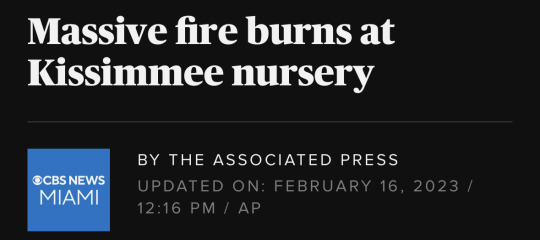
Source
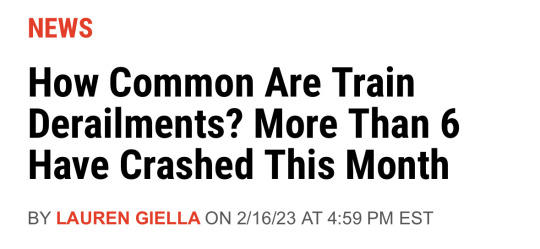
Source
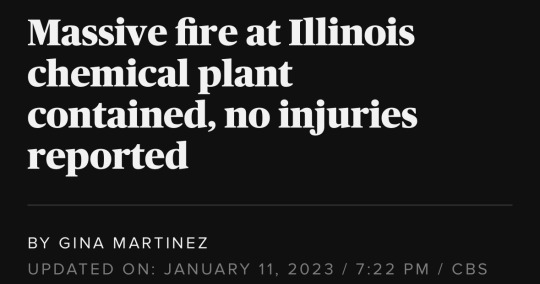
Source
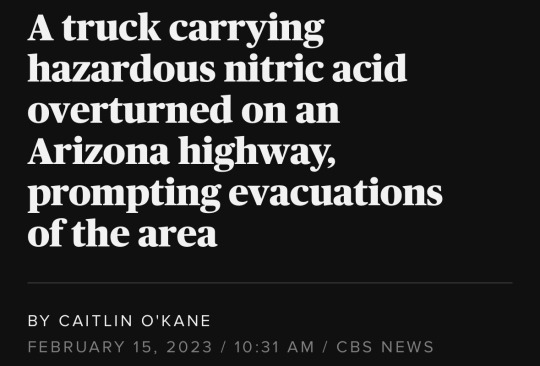
Source
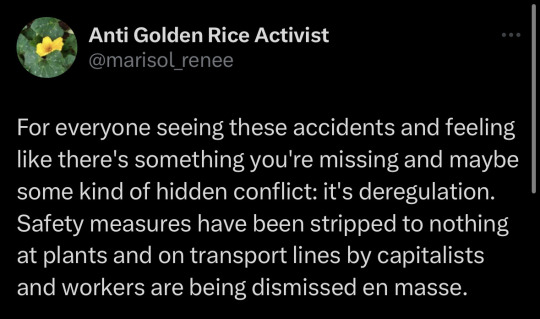
#important#capitalism#end capitalism#current events#government#regulation#the left#progressive#working class
7K notes
·
View notes
Text
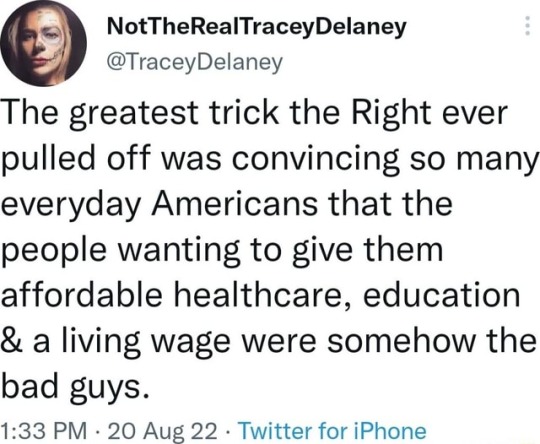
#free healthcare#free education#anti capitalism#eat the rich#late stage capitalism#capitalism#fuck capitalism#socialism#antiwork#capitalist hell#poverty#social issues#society#social security#social commentary#social justice#social skills#regulation#investments#social distancing
3K notes
·
View notes
Text
It's being estimated that the spaceX launch, lacking the regulation and oversight of NASA launches, might have wiped out as much as 4% of the population of the federally protected Piping Plovers who's nesting site was within the effected area of the launch blast.

But you know, privatising space is cool because billionare fanboys think it's awesome.
#spaceX#environmental impact#environmentalism#protected species#endangered species#piping plovers#capitalism will kill us all#but its starting with the birds#NASA has oversight and regulations for a reason actually#Put scientists in charge of space not business
5K notes
·
View notes
Note
on: "there is no ethical consumption under capitalism," would you agree to the corollary that: "and there CAN be no ethical consumption under capitalism" or is there some meliorist path towards ethical consumption under capitalism
As a social democrat, I'm very much a believer in "meliorist" solutions and deeply skeptical of the undistributed middle. It is a matter of historical fact that capitalism can function in a number of ethical "registers," and anyone who tells you otherwise is trying to sucker you into pseudo-revolutionary defeatism.
There is a real difference between completely unrestrained dark Satanic mills powered by child labor and slave cotton and a fully-realized social democratic mixed economy, complete with tripartite bargaining and co-determination, economic planning organized through a jobs state and decommodified/nationalized economic sectors including a social democratic welfare state, and a robust regulatory state that can enforce safety and environmental and labor standards at home and abroad - and there are many different points along that spectrum.

My main critique of the whole "ethical consumption under capitalism" thing is that the variant of it that stresses individual consumer behavior is a total fantasy.
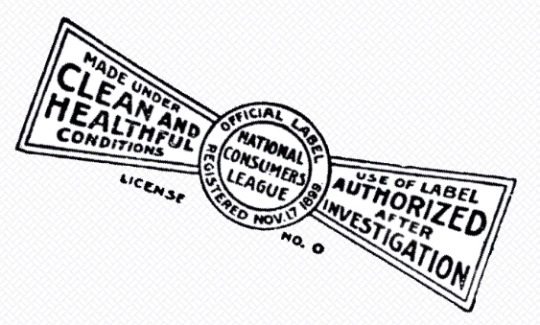
It is simply impossible to exert pressure on capitalist systems on your own, or even through ad hoc or single-issue boycott efforts. You need social movements like the National Consumers League that combine mass mobilization with permanent infrastructure, those movements need to be in coalition with the labor movement and civil rights movements, all of them need a regulatory state with the capacity to enforce its will on corporations - and that state needs them as countervailing forces against corporate lobbyists.
youtube
#history#historical analysis#economic policy#political economy#regulation#regulatory state#ethical consumption under capitalism#economic history#social democracy#mixed economy#co-determination#boycotts
60 notes
·
View notes
Text
How is tumblr going to ban porn and then show me ads where two triceratops are straight up having sex
#frankly these mobile game ads have also gotten just kinda disgusting and i feel like there needs to be regulations on them#i don't mean the dino fuck one it's not graphic but like#all the ones about those app women getting abused are out of hand like i keep seeing one where a guy cuts off a his wifes boob???#or where a lady is lactating or pissing herself or shitting herself#or even ones that imply straight up sa. like.#i understand. it's because it's shocking and drives engagement and ppl to make YouTube videos going woooaa weird ads but.#like. i don't wanna talk too much about them bc i don't wanna feed into what makes it effective but i just feel like#there needs to be somekinda standards here. the same way you can't just show whatever on tv advertisements#bc malicious advertising is an issue and there SHOULD be limitations to make sure this doesn't happen#not just bc it's gross but because it's underhanded and also false advertising! that stuff is straight up not in the app lol#it's usually just candy crush w extra steps#tbh im surprised no one has capitalized on actually making a fucked up gross game like that since there's clearly an audience#but still. annoying. sick of seeing them
45 notes
·
View notes
Note
the average person doesn't expect you to be a perfect ethical consumer, that's not possible for the vast majority of us. but what youre saying is it's better to do nothing at all and choose the worst possible options (sweat shops, overseas shipping waste, idea/product theft, all wrapped up in SHEIN) than to put even the tiniest effort in where you can.
[they are referring to this post]
What I said was "some people are doing literally everything they can to survive and have no extra bandwidth to spend extra time and money on their purchases, and it is cruel and therefore un-punk to gatekeep punkness and add additional shame to these people's lives based on that fact."
I think it's still a good thing to try to ethically consume; I literally never said it wasn't. I had never even heard of SHEIN before. Rather, I am much more concerned about what I saw as arbitrary gatekeeping based on ability and income.
And frankly how dare you claim that I am supporting sweatshops and abuse by saying that this additional work you are demanding (in this case, presumably, vetting every clothing company you buy from) is not always possible for people. It is not a light accusation to accuse me of supporting abuse.
"How dare you say we piss on the poor", Etc. 🙄 this isn't Twitter. You are determined to enforce moral purity, but you are failing to see the nuance.
Because when I say "no extra bandwidth," I mean no extra bandwidth. This is not the "car shows it's on E but actually secretly it has a lot of gas left" situation that abled people constantly assume disabled people mean when they say they are at their limit.
This is "at a certain point, people will hit a wall in terms of money and time and energy, and any energy spent after that comes directly out of their life force."
So the argument "okay but just spend a little more time money and energy actually" is not a valid one.
And the argument "if you are not able to do this specific task, then it means you're not doing anything else to make the world a better place" doesn't exactly impress me either. You said yourself that it is impossible to be a perfectly ethical consumer for most people.
How do you know what else people are doing to resist oppression? How many hours per week until your standards are met?What if someone works 3 jobs? Does that mean it's harder to be a good person if you're poor?? Why do you get to decide what specific avenue of bettering the world is the most morally repugnant or acceptable? What kind of proof of goodness and effort would make you satisfied enough to lay off on the shame?? Who are you helping??
Clothing is a fundamental human need, and some of us have to buy cheap fucking clothes quickly. Billionaires are buying their seventh yacht this month. The people who own fast fashion companies are abusing their workers and putting local affordable clothing stores out of business - and this applies for basically every company with price points that low because governments are failing to regulate corporations to enforce basic human rights.
I have $300 to spend on a new wardrobe as my old clothes have fallen apart or become too small. Do you have a way for me to get a new winter coat, 3 flannels, 10 shirts, 3 dress shirts, new sandals, 10 pairs of pants, 5 bras, 12 pairs of socks, and 10 pairs of underwear within that budget and also definitely 100% ethically sourced, with free returns in case it doesn't fit? Or will I simply have to use the cheap stores?
I have about an hour to spend on this per week. Should I continue to wear small and tattered clothing until I have the time, money, and energy to meet your standards? Did you know there are more empty homes in this country than homeless people? If I decide to splurge on only 100% ethically-produced products, and I can't make rent, and I become homeless, are YOU going to be there for me?? Or are you busy litigating the endless tiny shames of poverty in your own community?
So I ask you again, are you sure this is where you want to direct your punk energy? Because energy and time, as it turns out, are limited resources. And I would never expect you to secretly have more than you claim to have.
#original#punk#hopepunk#cripplepunk#i swear to god#reading comprehension website#how dare you say we piss on the poor#jfc 'what you're saying is we should do nothing' - what I'm saying is YOU are doing nothing by enforcing this boundary#you have to give people more credit than this. i believe you want a better world too. and it would be cool if you used your energy to#instead ask 'how do i fight for the people in my community to be clothed and have the time and income to shop ethically?'#or 'how do i support activism that pushes for regulation that could control these companies?'#monitoring how poor people spend money is a supremely Republican thing to do. as is demanding clear moral purity from every scenario.#you want a better world too. you want to demand your peers do better. - fine. good.#but you need to be asking if you have remembered and included everyone's needs when making statements like this.#capitalism is all for forgetting about poor and disabled people and refusing to believe their limits.#shame is a necessary weapon in fighting greed but it IS a weapon. be so careful where you point that shit. enough shame can kill a person#and a lot of us are already defending from it from all sides.#shaming a person who is already at their limit for not doing more is an act of cruelty. think very carefully about what that means please.#i literally don't even know what SHEIN is lol i just know classism when i see it#but I've had friends whose clothes were visibly falling apart with no income and so much so shame so deep in their hearts they were dying#and if they had seen that post it would have made them even sicker and gotten them no closer to the dignity of being properly clothed#shame is a weapon and /you need to be careful!!!!/
85 notes
·
View notes
Note
She sells seashells on a seashore. But the value of these shells will fall.
Due to the laws of supply and demand, no one wants to buy shells 'cause there's loads on the sand.
Step one, you must create a sense of scarcity. Shells will sell much better if the people think they're rare, you see.
Bear with me, take as many shells as you can find and hide 'em on an island stockpile 'em high until they're rarer than a diamond.
Step two, you gotta make the people think that they want 'em. Really want 'em, really fuckin' want 'em, hit 'em like Bronson.
Influencers, product placement, featured prime time entertainment. If you haven't got a shell then you're just a fucking wasteman
Three, it's monopoly, invest inside some property. Start a corporation, make a logo, do it properly.
"Shells must sell", that will be your new philosophy. Swallow all your morals, they're a poor man's quality
Four, expand, expand, expand. Clear forest, make land, fresh blood on hand
Five, why just shells? Why limit your self? She sells seashells, sell oil as well!
Six, guns, sell stocks, sell diamonds. Sell rocks, sell water to a fish, sell the time to a clock
Seven, press on the gas, take your foot off the brakes, run to be the president of the United States.
Eight, big smile mate, big wave that's great. Now the truth is overrated, tell lies out the gate
Nine, polarise the people, controversy is the game. It don't matter if they hate you if they all say your name
Ten, the world is yours. Step out on a stage to a round of applause
You're a liar, a cheat, a devil, a whore.
And you sell seashells on the seashore.

#ask the deerstalker medic#you did it. you broke capitalism without any checks or regulations on the free market down to its bare essentials
44 notes
·
View notes
Text
Mmmmm okay but honest question tho
The KOSA regulations would need to be implemented even if the companies offer their services only outside of the country? 🤔 And if they are established on another country and offer its services to usa, they need to implement the regulations right?
Because like, I was thinking of how mihoyo moved from china to avoid the censorship regulations globally, for example
And like, couldnt then social media companies preassure the goverment about doing that too, then
Like, even if they had to censor stuff for usa, they would be losing a lot of potential interactions because of the content theyre hiding, so if they had to censor everything in case of being established in usa (even if it is content being shown outside of the country), wouldnt it be better for them to just move the company to another country then. To continue having those extra interactions from "censored posts" shown to other countries.
Or even, if the cost of filtering the posts was too high, its possible some companies would choose to not offer their services to usa anymore. Idk how taxes to big companies work in those cases, but that would be a loss for them in the long term too right.
Like, isnt the whole bill a bad idea even commercially?
And couldnt it happen that companies publish a statement about getting out of the country in case the regulations were stablished?
#kids online safety act#kosa bill#stop kosa#politics#capitalism#I mean. spotify did a statement here about the changes in copyright laws#threatening to not offer their services anymore because they didnt want to pay extra#for example#so like. couldnt social media companies also do that in usa. about internet regulations#its a honest question#or are they scared of losing their conservative users. as they may talk shit about the company because of refusing the regulations?#or could it be fear of retaliation from the government/cia/stuff??? wouldnt it just be better for them all to move out of the country then#I just think its lowkey weird how the companies that would be affected by this regulations have been staying silent#are they just confident the bill wont pass then#lmao#long post
24 notes
·
View notes
Text
Will anybody be interested if I made a list of adult transmasc and Nonbinary/transneutral main/major characters in adult fantasy and Science Books.
Because I'm legit sick of the infantilisation both within and outside the community. Why is so much of the NB and transmasc rep children 😭.
Even outside of the miniscule rep Even less of it are grown adult main characters. None of that side character's love interest is a trans dude business, or a they/them appears for one page and is never seen again.
Anyway I've got a handful of characters in books I've read/on my TBR and I want to share them with others looking for this kind of rep.
#adult fantasy#adult science fiction#adult sci-fi#lgbtq#queer representation#trans#transmasc#nonbinary#transneutral#also I'm not interested in romance so a NB mc in a capital R fantasy romance i don't give. shit about that guff lol#And why are so many grown ass trans(or queer in general) adults so invested in YA#Like Gawd damn all the rep shouldn't regulated to kids books.#by adult the characters need to be 20s and above#because if i used the 18/19 year old legal adult excuse way too much YA BS will clog the list lol#adult sff#books
26 notes
·
View notes
Text

"FIRST CONVICTION UNDER THE NEW ACT," Toronto Star. June 2, 1913. Page 2.
----
J. L. Speedy Got an Order to Supply a Gang of Italians.
---
DEAL FELL THROUGH
----
Sudbury, June 2 - G. L. Sheedy, an employment agent of North Bay, was convicted, but released on suspended sentence Saturday for an infraction of the recent Order-in-Council relating to the protection of immigrants. This is said to be the first case under the new Act.
On May 21 Sheedy got a telephone (not a written) order from Foley Bros. and the Northern Construction Company, Sudbury, to bring in a gang of some thirty Italians. Out of a gang of twenty-eight seven or eight were boys between seventeen and twenty years, sons of fathers in the gang. At Sudbury Foley Bros, and the Northern Construction Co. rejected the minors, but were willing to hire the adults. The gang, however, refused to split, and the deal was off. When the gang applied to Sheedy for their baggage checks, he refused to give them up unless he was reimbursed for the fares of the party from North Bay to Sudbury. The men were stranded.
#sudbury#employment agent#contractor#suspended sentence#labor regulation#hiring practices#working class struggle#italian immigration to canada#italian canadians#work gang#northern ontario#regulation of capitalism
0 notes
Text
this ^report is from 2020. However- much news has since been reported about the staggering increase of wealth 'at the top' since COVID began.
"...Canadian capitalism is exposed in the study as an oligarchic social order.
According to the PBO, the share of wealth held by the top one percent of Canadians is 25.6 percent. This is almost double the estimate of 13.7 percent given by Statistics Canada."
@allthecanadianpolitics good resource article here.
#so called 'canada'#it's the capitalists#oligarchy#we are the 99%#capitalism is killing us#how will you resist?#the economy is meant to serve society#the economy does not have rights#regulate industry#polluter pay#tax the rich#VOTE federal NDP#luxury tax#canadian politics#canpoli
218 notes
·
View notes
Text
Small post on my take on AI
Unfortunately, because of how AI has been taken advantage of by large corporations to cut costs, there's a very unhealthy discontent amongst creators and workers with AI.
The fact is that AI will continue to be a part of our lives for the rest of human history, most likely. And that's not a bad thing as it's already in more things than you can imagine, and it's changed how we do things for the better to be completely honest.
With the advancement of AI comes the ability to make people's lives easier. It should be used to help us with/do the boring and mundane tasks so that we can focus on enjoying our time on this earth. However, there definitely needs to be new laws put into place to regulate what AI can and can not be used for.
For example. The shitshow that was Marvel blatantly and openly admitting to using AI art in their trailer for Secret Invasion. I don't care that it's symbolic. It took jobs away from artists just so they could cut corners and not have to pay for it. Just because humans are being replaced in the movie doesn't mean we should do the same irl. Like seriously, learn to separate fiction from reality.
That being said, AI creative works like art and writings should never be used as final products unless they are for personal use only. Rather, they should be used as references and inspiration for creators to expand their horizon or work on new projects. Once again, reference, not final products.
Having said that, yes, AI would have to scoop the internet to continue evolving. The fact of the matter is that AI can't get better without references. However, consent is still important. If a creator doesn't want their stuff put into AI, that's their choice and right. In the same way you can choose not to participate in a study.
In the end, companies need to acknowledge the importance of artists, writers, and workers and their efforts (as well as accept human value in general). Nothing a machine produces will be able to compare to what the hands of a living being can make as they are, in the end, imitations of the original human works.
So again, AI isn't the devil, but it should be monitored and put to use for humans, not against humans.
Corporations need to learn that advancements in technology shouldn't be used to help their profits but to help humanity as whole (which in the end will benefit them if they can just get their heads out of the asses for one minute 🙄). And hopefully with the development of AI and robotics, humans will no longer have to do/work on anything that they don't wish to just so they can survive.
Life should be about enjoyment and experiences, not living paycheck to paycheck, and AI can help with that, but only if it's used properly and not taken advantage of.
#promotion of human happiness through advancements in technology#ai#advancements in technology#advancements in ai#technological advancements#future of technology#future of ai#anti capitalism#anti corporations#anti oligarchy#ai regulation#ai laws
56 notes
·
View notes
Text
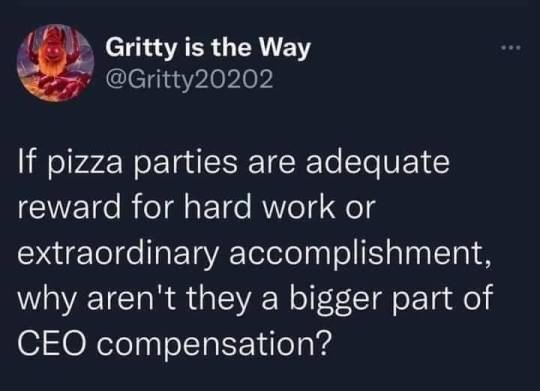
#pizza hut#i love pizza#tesla ceo#regulations#rich people#rich#eat the rich#income#wealth#millionaire#billionaire#kill 6 billion demons#billionarelifestyle#billionares shouldnt exist#launches#bank#heres#socialism#anti capitalism#communism#leftist#marxism#anarchy#democratic socialism
150 notes
·
View notes